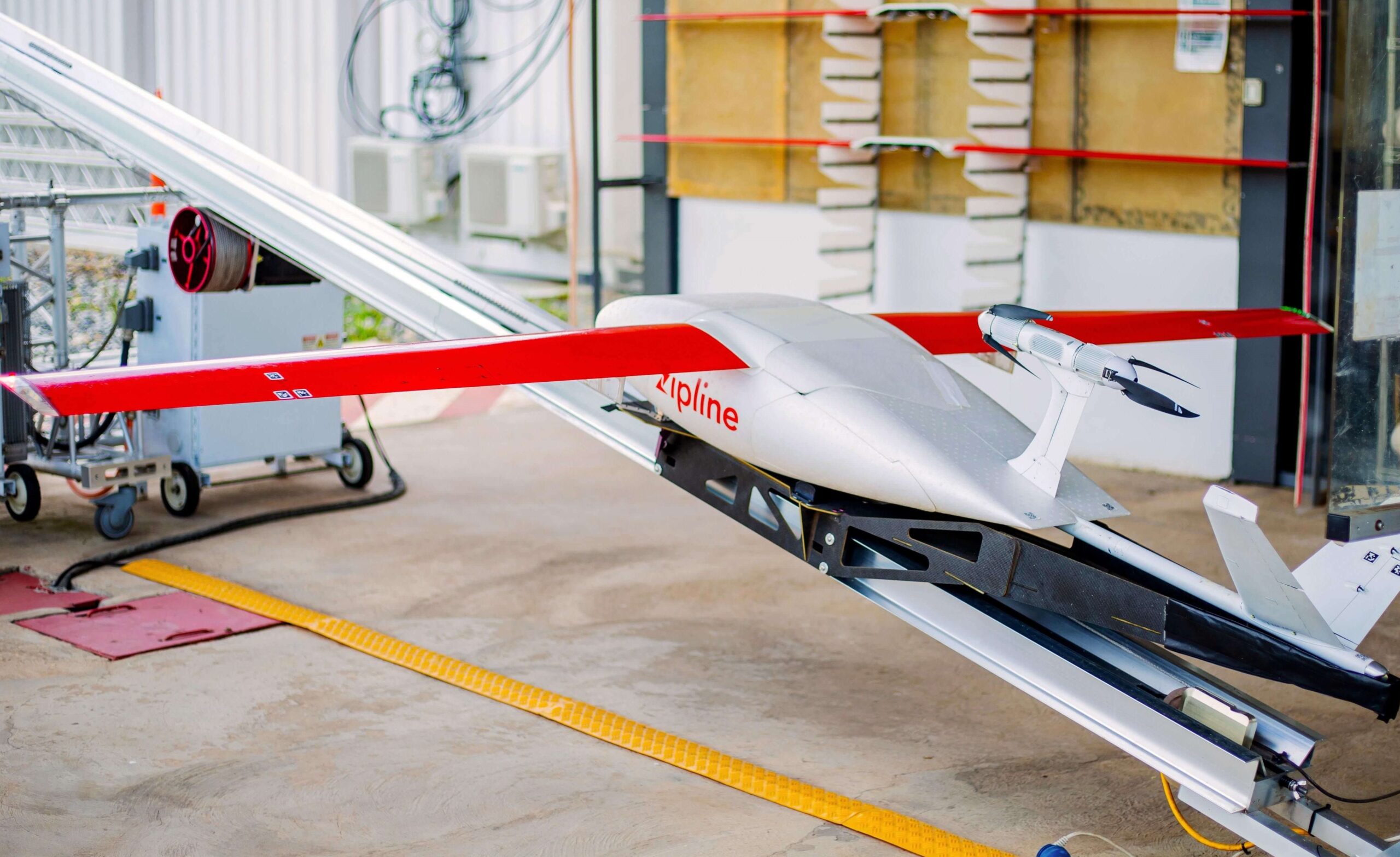In Monkra, Krachi West District, Ghana, there is an abundance of roots and tubers. The District is famous for its yams, cassava, cereals, and legumes and is one of the major agricultural centres in the Volta Region.
However, the region also has known shortage in a more critical area- medicine.
The community has had a longstanding problem accessing emergency drugs, especially anti-snake serum and other essential medicines.
Rose Ntoso, a resident of Monkra, knows this too well.
“Life has not been easy for us. When we needed drugs urgently, we had to use motorbikes to get them at the centre in Krachi. At times the motorbikes would break down on the way; I tell you, life has not been easy,” she said.
But this narrative is gradually changing since the country adopted drones to deliver drugs under Zipline in 2019.
Zipline is a robotics drone-delivery company facilitating automated, on-demand and timely availability of medical products in the region.
“Since the coming of Zipline, when we need some drugs, we chat with them, and they respond. They have a WhatsApp platform with all the facilities on board,” said Tadeous Kwaku Nyoja, a senior nurse at the Monkra Community Health Planning and Services.
“During an emergency, we chat with them and notify them of the drugs we need. Within 10 to 15 minutes, they fly the drugs here. It has really reduced the time we spend getting drugs during emergencies.”
Low access to medical supplies, especially in Ghana’s rural communities, has significantly hindered the country’s effective implementation of universal access to healthcare for its citizens.
Since the introduction of drone technology, health delivery has significantly improved in the Monkra Community and other rural communities spread across the 16 regions of Ghana.
There are currently zipline centres at Omenako, Mpanya, Vobsi, Sefwi-Wiawso, Anum and Kete-Krachi.
“Since the introduction of the drone in the Municipality, health delivery has improved. Now in the community, we can get drugs on time when there is an emergency,” Ntoso noted.
Krachi West’s Municipal Director of Health, Victor Ahiaba, acknowledges that using drones for medical deliveries has solved the problems posed by environmental catastrophes in the region.
“During this season, the lake is overflooded, and some communities such as Chante and Cement are cut off. We have to be on the lake for hours before we are able to send medicine to them. But with the Zipline coming on board, within a very short time, we are able to serve them,” he said.
Since its establishment in Ghana, Zipline has flown over 15 million miles and delivered more than five million doses of vaccines, in addition to blood products and other essential medicines.
Other African countries, including Uganda, Senegal, Madagascar, Rwanda and Malawi, have also adopted drone technology to improve their health delivery system.
In Rwanda, Zipline drones have been delivering medicine since 2016. From blood plasma deliveries to mosquito larva spraying and delivering essential drugs, over 350 health centres rely on drones for crucial deliveries. The company currently aims to complete 2 million healthcare deliveries and fly over 200 million autonomous kilometres in Rwanda by 2029.
The Ugandan Ministry of Health, in collaboration with Johnson and Johnson Corporation, has been using drones to deliver HIV treatments to the people of the Kalangala islands since 2021. With five drone routes developed, anti-retroviral medicines are now delivered to 17 community groups.
In Conakry, Guinea, drones are being used in place of motorbikes to bypass the traffic in the metropolis and quickly deliver blood samples of children born to mothers living with HIV for a diagnostic test.
The test project aims to study ways of optimising the transport of blood samples in the city of Conakry compared with ground transport by motorbike.
Nigeria recently commissioned the first drone deliveries in Kaduna and Cross River states.
In Kenya, Zipline already has an active MOU with four counties from the Lake Region Economic Bloc. Under an agreement signed between Zipline and one of the counties, Kisumu, Zipline will deliver medical products, including COVID-19 vaccines and blood products, to over 400 health facilities across the county.
Kofi Kafui, a technology expert with Inovux Consult, said the drone health delivery system has made it easier to reach remote communities where access to healthcare was a challenge.
“The drone delivery system overcomes challenges including inaccessible roads and flooding challenges. The technology leverages existing GPS coordinates, ensuring commodities are delivered close to the given coordinates. This ensures facilities get the needed item quickly compared to transport logistics via road,” Kafui said.
“Let me also add that there is efficient tracking of inventory which reduces error in data capture and management.”
With Drones increasingly used to support healthcare programmes in the continent, Africa may soon be on track to achieving universal healthcare coverage.
bird story agency
Monkra, in Krachi West District, Ghana, known for its agricultural produce such as yams and cassava, faced critical shortages of emergency medicines, including anti-snake serum. Residents like Rose Ntoso struggled to access these essential drugs, often relying on motorbikes to reach medical centres, which was not always reliable.
This changed with the introduction of Zipline drones in 2019, facilitating timely medical deliveries. The drones, operated via a WhatsApp platform, can deliver emergency medicines within 10 to 15 minutes, significantly improving healthcare delivery in the region.
Zipline's impact extends across Ghana and other African countries like Uganda, Rwanda, and Kenya. For example, in Rwanda, Zipline supports over 350 health centres by delivering critical health supplies. In Uganda, drones deliver HIV treatments to remote islands, improving access to necessary care.
The technology has helped overcome challenges such as inaccessible roads and flooding, ensuring quick delivery and efficient inventory tracking. These advancements in drone technology are helping African countries move closer to achieving universal healthcare coverage.






